Sometimes the railway doesn’t help itself. As this issue of RAIL went to press a row had erupted regarding engineering works clashing with a major sporting event at Wembley.
At the same time, Govia Thameslink Railway was forced to go to the High Court to obtain an injunction to operate brand new trains, after a union refused to operate them.
Around 60,000 passengers could have travelled by rail for the FA Cup semi-final between Manchester United and Everton at Wembley on April 23.
Engineering work meant that after the match the West Coast Main Line south of Rugby would have two of its four lines closed, while Weaver Junction was also shut. Network Rail was initially reluctant to explain that to RAIL’s Paul Stephen. As RAIL went to press NR never said where or what the work was.
The match kicked off at 1715, so would have finished soon after 1900 at the earliest. Predictably there were stories about how fans could get to the game, but not return home. While the last direct trains are at 2100, potentially the match might not have finished until 2000 (RAIL went to press before the tie was played). Fans would have an hour to leave a stadium with a 90,000 capacity and reach London Euston. There are no cancelled trains, but no extra trains to Liverpool or Manchester.
Network Rail told Paul that improvements works are planned at least 18 months in advance. I don’t buy that as an excuse. The Football Association moved the final in 2012 to cater for bigger TV audiences (revenue), since when there have been no plans to move it back to the traditional 1500 kick-off. NR can rightly point out that the teams contesting the match won’t be known, but surely it knows that the event is taking place. They are revealed in June.
The game kicked off at 1715, making the last timetabled direct train services from London Euston to Liverpool (2031) and Manchester Piccadilly (2100). If the fixture went into extra time and penalties, supporters would have had little (or no) chance to make the journey by public transport from Wembley to Euston in time to make their connections.
Unsurprisingly the national press has reported this. The Daily Telegraph ran a story on April 15 with the headline “United and Everton fans furious at Cup kick-off”, with the story mentioning that supporters had been warned that return services will stop after 2100 because of ‘essential maintenance work’ by Network Rail. The same day the Daily Mirror ran the headline “Manchester United come to the rescue with free coach travel to Wembley after FA disrespect fans”. This time NR was “caught up in row over FA Cup travel chaos”.
On the morning of April 20 the Daily Mail had joined in, with the headline “Failing the fans is rail disgrace”.
Supporters groups have criticised what they call a lack of co-ordination between NR and the Football Association over the scheduling. This happened before. In 2012 Liverpool fans were badly affected following their FA Cup Final, while 12 months later fans of Wigan and Manchester City also faced limited travel choices when their clubs met in the final.
Compare this with the planning for the Olympics. The effort put into ensuring the railway didn’t fail created nothing but positive headlines. It involved plenty of effort, but the reward was plenty of public goodwill. But despite the doubling of passenger numbers, there will never be a guarantee that the general public loves the railway.
Recently consumer watchdog Which? issued a statement on passenger satisfaction. It said: “Following another bank holiday weekend blighted by rail engineering works, new Which? analysis reveals that passenger satisfaction with value for money has remained low over the last ten years, as fares have spiralled.”
That was at Easter. I contacted the watchdog and asked when it expected the work to be done, and its spokesman Lloyd Purnell told me: “Apologies, but this isn’t something that Which? takes a policy on. We only included this line to add some context to the release.”
If a watchdog is prepared to announce in a press release to the national media that the railway was blighted by engineering works “for context”, perhaps the railway needs to be savvy enough to realise when it could reap some goodwill. Transporting 60,000 sports fans on a Saturday evening should not be difficult.
The FA told RAIL it had “worked hard with the relevant partners” to ensure that other options were in place. The FA’s transport partner National Express was planning to run special coach services guaranteed to leave Wembley 45 minutes after the final whistle, while Manchester United offered free coach travel to its entire travelling contingent.
Mike Hewitson, head of policy at independent watchdog Transport Focus, told Paul that questions need to be asked about the scheduling, and that discussions are needed.
Virgin Trains said it wants to carry fans, but cannot do so because of NR’s planned work. Earlier this year it had run extra trains for a Capital One Cup final match at Wembley.
That is the correct thing to do. If things go right, there is a chance that fans will use the railway again, and for more than just following their team. But likewise, if it goes wrong, there is a good chance that revenue will be lost to the railway forever. Can it really afford to lose 60,000 passengers?
Elsewhere, GTR is going to the High Court as it seeks to run brand new trains on the Gatwick Express route. An injunction has been sought after ASLEF declared that its drivers would not operate the 12-car trains on the route because of issues relating to Driver Only Operation.
On April 9 a driver took the 0530 from London Victoria but refused to open the doors to let passengers on board, and around 30 people heading for the airport were left behind.
GTR says the Gatwick Express route has run as DOO since 1999, and that drivers operate identical ‘387s’ in 12-car formations on the same route for Thameslink. Yet ASLEF National Organiser Simon Weller states: “Driver Only Operation is a legacy of the shoestring economics of British Rail. It is now a better and more exciting railway, and we should not be using the practices of the past. We oppose DOO on safety grounds. And we regard longer trains as the imposition of an extension of DOO.
“This is about much more than two more carriages. It’s about passenger security, accessibility for the disabled, and lone women travellers. It’s about how Southern treat their staff. It’s more than just saving Southern some money.
“We have had agreements to work 12-car trains without a guard in the past. Just because we made a bad agreement then does not mean we should continue to make bad agreements. Passengers want guards on the trains.”
This could rumble on, but much like with the FA Cup semi-final, ultimately it’s the passengers who lose out. Has the industry forgotten who uses the railway?
- Nigel Harris is away.
Comment: RAIL 799: April 27 2016 - May 10 2016

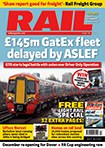
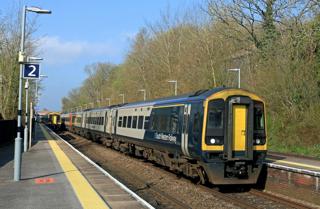
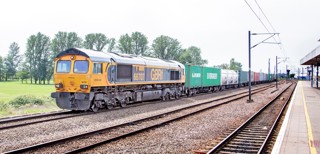
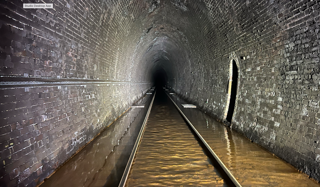
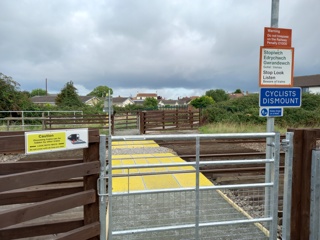












Login to comment
Comments
No comments have been made yet.